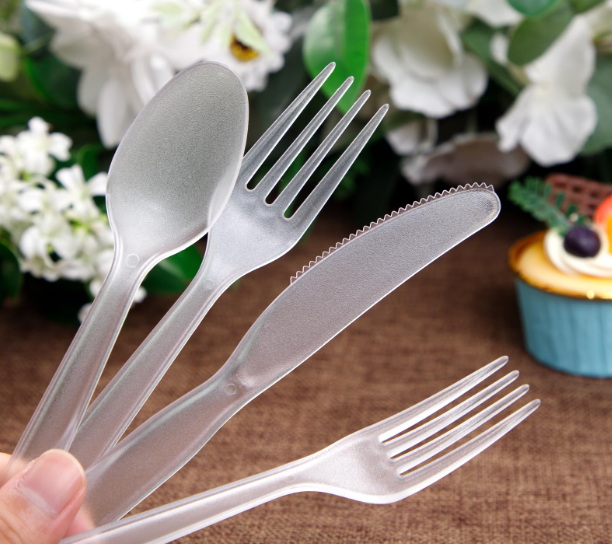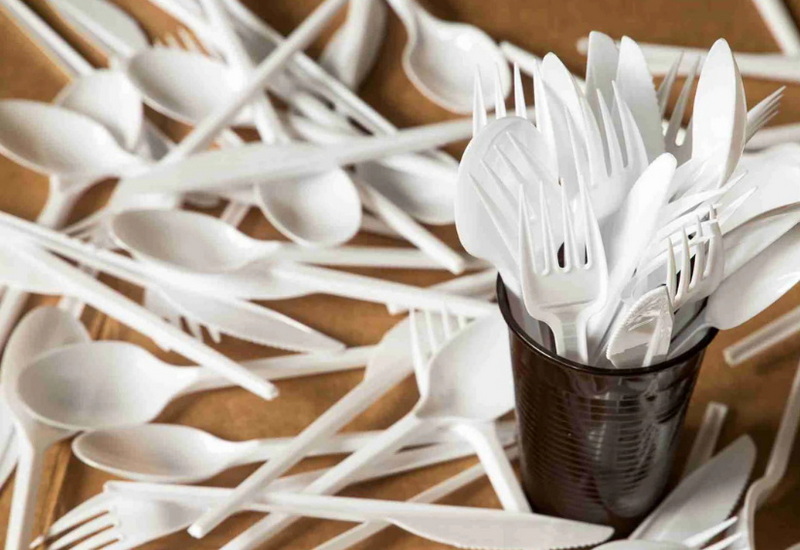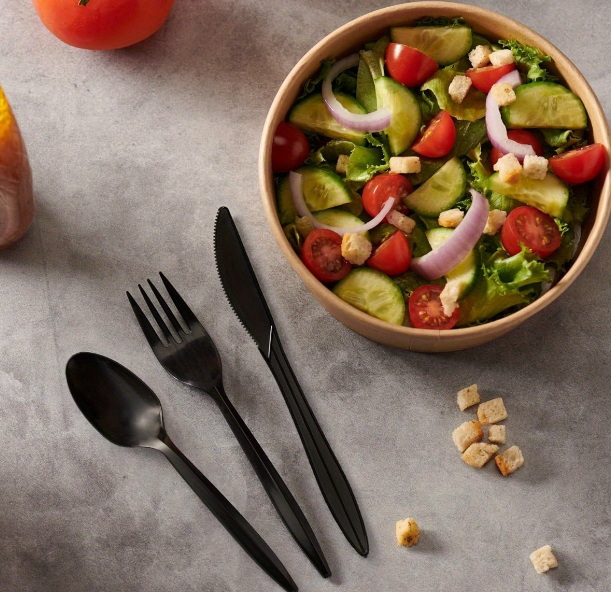
Content Menu
● Introduction to Disposable Utensils
>> Plastic Utensils
>>> Price Range for Plastic Utensils:
>> Wooden Utensils
>>> Price Range for Wooden Utensils:
● Environmental Impact
>> Environmental Pollution
● Regulatory Efforts
>> Single-Use Plastic Products Regulation Act
● Market Trends
>> Shift Towards Eco-Friendly Options
>> Consumer Awareness
>> Market Growth
● Disposable Spoon and Fork Price Philippines
>> Cost Comparison
>> Supply Chain and Distribution
● Impact on Small Businesses
>> Challenges for Small Businesses
>> Opportunities for Growth
● Conclusion
● FAQ
>> 1. What are the environmental impacts of using disposable plastic utensils?
>> 2. Are there any regulations on single-use plastics in the Philippines?
>> 3. What are the benefits of using wooden utensils over plastic ones?
>> 4. How much do wooden utensils cost compared to plastic ones?
>> 5. Are there any alternatives to disposable utensils?
The Philippines, like many countries, faces significant challenges related to plastic waste and disposable utensils. In recent years, there has been a growing trend towards using eco-friendly alternatives, such as wooden utensils, to reduce plastic pollution. However, disposable plastic utensils remain widely used due to their convenience and affordability. This article will explore the average prices of disposable utensils in the Philippines, focusing on plastic and wooden options, and discuss the environmental implications and regulatory efforts.

Introduction to Disposable Utensils
Disposable utensils, including plastic and wooden spoons, forks, and sporks, are commonly used in food establishments and events. They offer convenience but contribute significantly to waste management issues.
Plastic Utensils
Plastic utensils are made from materials like polypropylene and are widely available due to their low cost and ease of use. However, they are not biodegradable and contribute to plastic pollution.
Price Range for Plastic Utensils:
- Golden Bee Plastic Spoon (100 pcs): Approximately ₱95.95.
- Stack & Stock Spoon (100 pcs): Around ₱85.10.
- Stack & Stock Fork (100 pcs): Approximately ₱85.05.
Wooden Utensils
Wooden utensils, on the other hand, are biodegradable and made from sustainable materials like bamboo. They are becoming more popular as an eco-friendly alternative.
Price Range for Wooden Utensils:
- Disposable Wooden Spoon (100s): Approximately ₱1.00 per piece.
- Disposable Wooden Fork (100s): Also around ₱1.00 per piece.
- Disposable Wooden Spork (100s): About ₱1.10 per piece.
Environmental Impact
The use of disposable utensils, particularly plastic ones, has a significant environmental impact. Plastic waste does not decompose easily and often ends up in oceans and landfills, contributing to pollution and harming wildlife.
Environmental Pollution
Plastic pollution is a major concern globally, and the Philippines is no exception. The country's efforts to reduce plastic waste include initiatives to clean up rivers and coastlines, which are often filled with plastic debris.
Regulatory Efforts
The Philippines has been taking steps to address plastic pollution. Several cities have banned single-use plastics, and there are ongoing efforts to pass national legislation regulating these products.
Single-Use Plastic Products Regulation Act
In 2021, the House of Representatives passed a bill to phase out non-compostable plastic products, including cutlery, within four years. This move aims to reduce marine pollution and promote sustainable practices.

Market Trends
The market for disposable utensils in the Philippines is influenced by consumer preferences, environmental concerns, and regulatory changes.
Shift Towards Eco-Friendly Options
There is a growing demand for eco-friendly disposable utensils, such as those made from bamboo or other sustainable materials. This shift is driven by consumer awareness of environmental issues and government initiatives to reduce plastic waste.
Consumer Awareness
Consumer awareness plays a crucial role in driving demand for eco-friendly products. As more consumers become aware of the environmental impacts of plastic, they are opting for sustainable alternatives.
Market Growth
The market for eco-friendly utensils is expected to grow as consumers and businesses seek alternatives to traditional plastic products. This growth is supported by government policies and public awareness campaigns.
Disposable Spoon and Fork Price Philippines
When considering the prices of disposable spoons and forks in the Philippines, it's essential to differentiate between plastic and wooden options.
- Plastic Spoon (100 pcs): Approximately ₱85.10 to ₱95.95.
- Plastic Fork (100 pcs): Around ₱85.05.
- Wooden Spoon (100s): Approximately ₱1.00 per piece.
- Wooden Fork (100s): Also around ₱1.00 per piece.
Cost Comparison
While plastic utensils are generally cheaper, the cost of wooden utensils is competitive when considering their eco-friendly benefits. The slight increase in cost is often offset by the positive environmental impact.
Supply Chain and Distribution
The supply chain for disposable utensils in the Philippines involves both local manufacturers and importers. The distribution network is extensive, with products available in most retail stores and online platforms.
Impact on Small Businesses
Small businesses, particularly those in the food industry, are significantly affected by the shift towards eco-friendly utensils. Many are transitioning to sustainable options to comply with regulations and meet consumer demands.
Challenges for Small Businesses
Small businesses face challenges in sourcing affordable eco-friendly alternatives. However, many are finding innovative solutions by partnering with local suppliers and exploring cost-effective options.
Opportunities for Growth
The shift towards sustainability also presents opportunities for small businesses to differentiate themselves and attract environmentally conscious consumers. This can lead to increased customer loyalty and brand reputation.
Conclusion
The average price of disposable utensils in the Philippines varies based on the material and quantity. Plastic utensils are generally cheaper but contribute to environmental issues, while wooden utensils offer an eco-friendly alternative at a slightly higher cost. As the country moves towards reducing plastic waste, the demand for sustainable options is expected to increase. This trend is supported by regulatory efforts and growing consumer awareness of environmental issues.

FAQ
1. What are the environmental impacts of using disposable plastic utensils?
Disposable plastic utensils contribute significantly to plastic pollution, as they do not biodegrade and often end up in oceans and landfills, harming wildlife and ecosystems.
2. Are there any regulations on single-use plastics in the Philippines?
Yes, several cities have banned single-use plastics, and there are ongoing efforts to pass national legislation regulating these products. The House of Representatives has passed a bill to phase out non-compostable plastic products.
3. What are the benefits of using wooden utensils over plastic ones?
Wooden utensils are biodegradable and made from sustainable materials, reducing plastic waste and environmental pollution. They offer an eco-friendly alternative to traditional plastic utensils.
4. How much do wooden utensils cost compared to plastic ones?
Wooden utensils generally cost more than plastic ones. For example, a wooden spoon or fork can cost around ₱1.00 per piece, while plastic spoons and forks can be purchased for approximately ₱0.85 to ₱0.95 per piece.
5. Are there any alternatives to disposable utensils?
Yes, reusable stainless steel or metal utensils are a sustainable alternative to disposable ones. They can be washed and reused multiple times, significantly reducing waste.

















